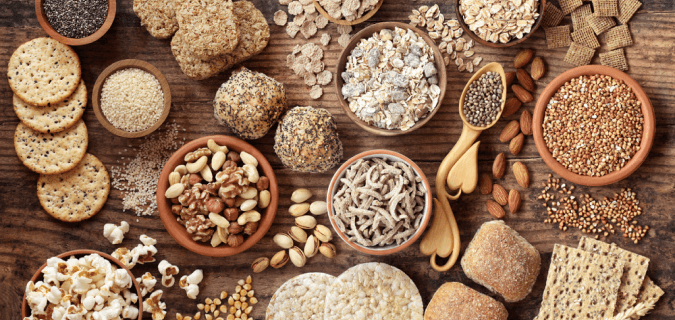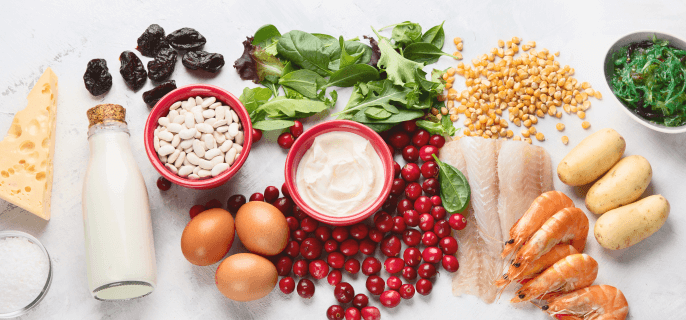Heart health is integral to living a healthy life. Cardiovascular or Heart diseases can have a catastrophic effect not only for the patient but also the family. Unfortunately, with the current lifestyle, heart diseases even youngsters are falling prey to it and the incidence is on an upward trend in them.
As the incidence of Cardiovascular diseases rises, measures need to be taken to prevent heart disease wherever possible. Fortunately, the majority of heart-related diseases can be prevented, and their risk factors can be managed in people already suffering from heart issues through healthy eating habits.

Eating healthy fats as opposed to following a low-fat diet has shown to be more effective for a healthy heart and preventing the risk of heart disease. Healthy fats include olive oil, fatty fish, fish oil, avocados, nuts like almonds and walnuts, and seeds like chia seeds and flax seeds.

Whole grains like wheat, barley, buckwheat, oat, brown rice, rye etc., are great choices. Having these whole grains and cereals daily can decrease the risk of heart disease by 10%-20%. They are rich in bran, germ and endosperm. On the other hand, refined carbohydrates have been proven to increase the risk of cardiovascular disease.

Red meat intake must be limited to prevent heart disease. Instead, opting for poultry and seafood as sources of animal-based protein can help maintain optimal muscle mass and reduce the fat percentage in the body.

Fruits and Vegetables rich in fibre are a great addition to one’s diet. Fruits like berries contain high amounts of antioxidants that play an essential role in preventing heart disease. Strawberries especially evidently can improve insulin resistance and lower LDL. Blueberries lead to reductions in LDL (bad) cholesterol, systolic blood pressure, and body mass index (BMI). Including more green leafy vegetables have been associated with up to a 16% lower incidence of heart disease.

Foods rich in ascorbic acid (vitamin C), α-tocopherol (vitamin E), folate, β-carotene, ubiquinone (coenzyme Q10), bioflavonoids and selenium reduce the risks of coronary diseases.

Diet rich in beans and legumes significantly decreases levels of LDL (bad) cholesterol. Legumes are also a great source of plant-based protein.

It is also essential to know foods that are detrimental to heart health. These include sugary-rich beverages, high sodium foods, and fried and junk food items.

Health supplements rich in omega three fatty acids, antioxidants and other essential nutrients can be beneficial in preventing heart disease. However, always consult a doctor before opting for new dietary supplements.
These are general food guidelines, and it is always recommended that you
consult a dietitian before
adding new food to your diet. You must inform your nutritionist about any existing medical
conditions, family history, and allergies.
In addition to eating healthily, maintaining a healthy weight, having an effective sleep schedule
and
doing regular exercise have shown to have beneficial effects on one’s Heart. Regular exercise has
been shown to lower the risk of heart disease, diabetes, stroke, blood pressure, and even certain
types of cancers.
This World Heart Day, we should be fully aware that the Heart is our vital organ, and we must take
care of it. Good heart health will help maintain your overall health and happiness. Your health
matters to you, and you matter to your loved ones.
So, pledge to take good care of your health and maintain healthy eating habits.